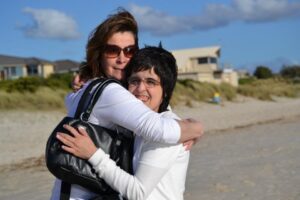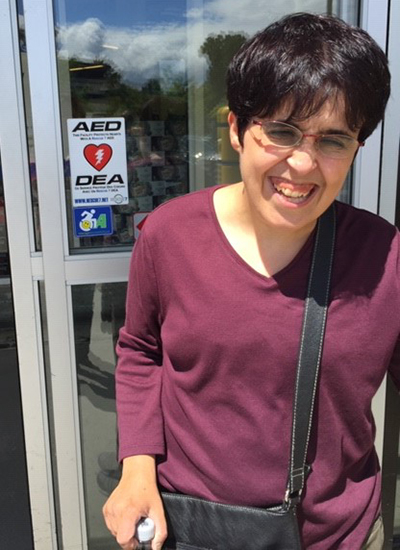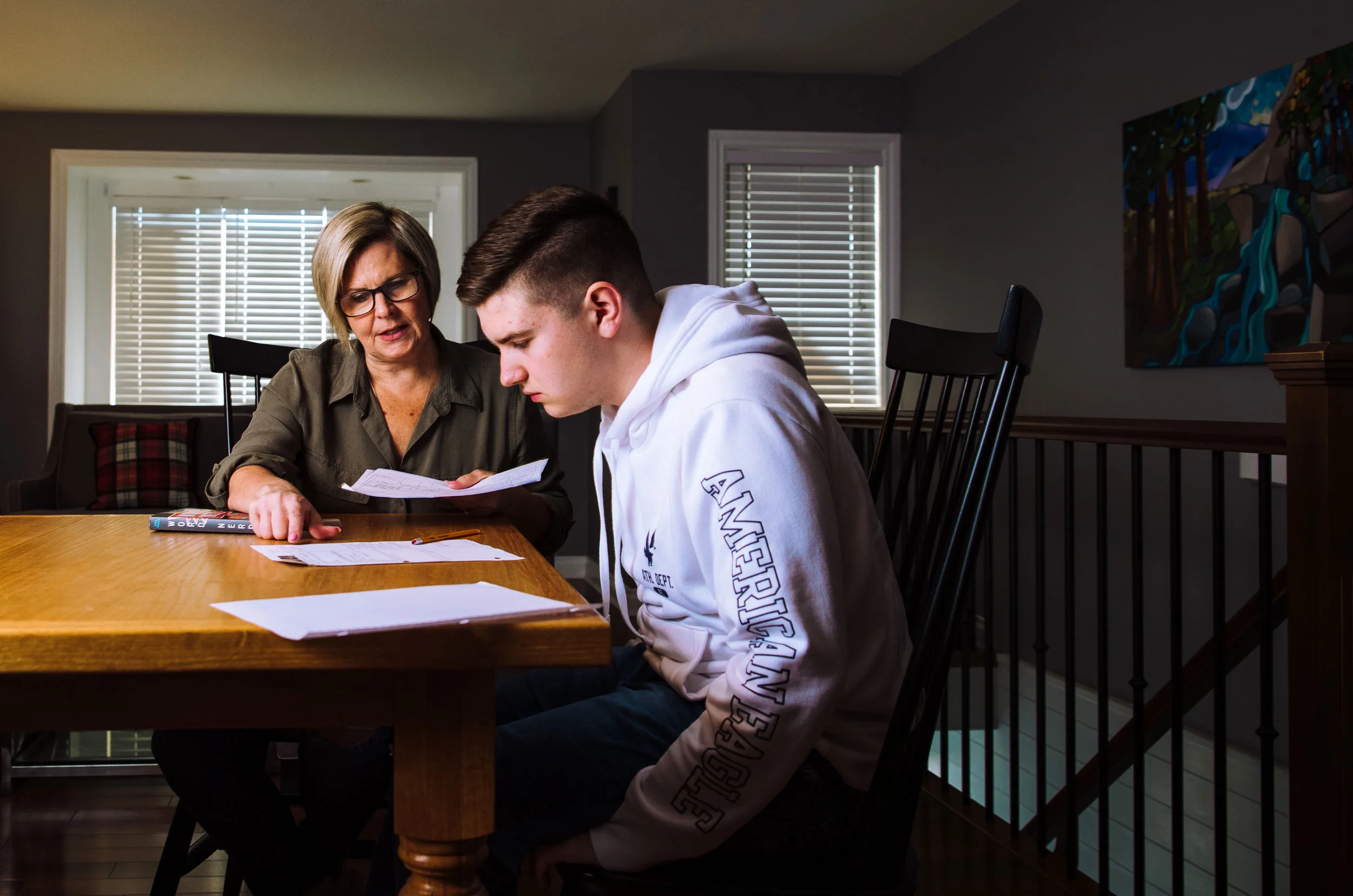[responsivevoice_button voice=”US English Female” buttontext=”Listen to Post”]

Katie Moore is a disability rights advocate and founded the advocacy group Okanagan Accessibility, which tries to remove physical barriers around the Okanagan by advocating for items such as accessible ramps and sidewalks. The organization takes note of businesses accessible to people with disabilities and offers them decals that they can display in their windows to demonstrate their inclusivity. In addition to meeting with business owners, Katie has also worked hard to influence political leaders in her community. She met with her MLA recently and says they’ve built a good rapport. “I have done two-hour walks with local council members, pointing out all the issues in the community, like crossing roads and sidewalk difficulties.” Next, she plans to meet with her MP!
 Katie is originally from the UK, and she and her family moved to Canada in 2009. “The process took a lot of work,” explains her mom, Debbie, “and we would have loved to come sooner, but Katie was still in school.” Katie went to both mainstream and ‘special’ schools in the UK, graduated at age 16, and then attended a four-year college program called Briar Patch. The school was a partnership between a housing association and a local college, providing residential and educational support for youth with intellectual disabilities. While at Briar Patch, Katie learned skills for independence like budgeting, meal planning, and transit skills.
Katie is originally from the UK, and she and her family moved to Canada in 2009. “The process took a lot of work,” explains her mom, Debbie, “and we would have loved to come sooner, but Katie was still in school.” Katie went to both mainstream and ‘special’ schools in the UK, graduated at age 16, and then attended a four-year college program called Briar Patch. The school was a partnership between a housing association and a local college, providing residential and educational support for youth with intellectual disabilities. While at Briar Patch, Katie learned skills for independence like budgeting, meal planning, and transit skills.
Debbie also pointed out that England hasn’t had the same history of institutionalization as Canada: “Children identified as having a disability typically weren’t institutionalized, so they were seen more in community. But schools were segregated up until fairly recently; there were two streams, mainstream schools and special schools.” It wasn’t just out in the community that Katie and Debbie noticed more representation in the UK: “The media, I think, plays quite a significant role. There have been some really positive dramas which have shown people with disabilities living full lives, and I think that speaks well to informing attitudes. So, when we came here, it was quite a shock to find out that Woodlands and other institutions had been in existence well into the seventies.”
Another notable difference between Katie’s experience in Canada and the UK has been in the medical system. Debbie says that she’s been very impressed with the support Katie’s received in terms of access to assistive devices like her wheelchair and other tools. “In the UK,” says Debbie, “the population is just so much greater – there’s a lot more demand on resources…I’m not sure [Katie] would have been as well supported there.” Katie’s brother, who is diagnosed with autism, likely would not have received financial support in the UK but does here in Canada.
Accessibility laws are another significant difference between the two countries. The UK has had national accessibility laws on the books for far over a decade (much longer if you consider the 1995 Disability Discrimination Act), while Canada didn’t implement the Accessible Canada Regulations until 2021.
For Katie’s part, she’s working hard to show local friends, neighbours, business owners and politicians that accessibility should always be a consideration. She chooses to do this through acknowledging those who are already doing this, and having direct, respectful conversations with those that could be doing better. She was the recipient of a Widening our World award from CLBC in 2018, and she shows no signs of stopping anytime soon.
Written by Katie Miller
Edited by Galen Exo and Wendy Goldsmith
This article was featured in the latest edition of our monthly newsletter, Inclusion in Action. Subscribe today to receive regular updates with stories like this.
Want to read more? Browse our newsletter archive here


